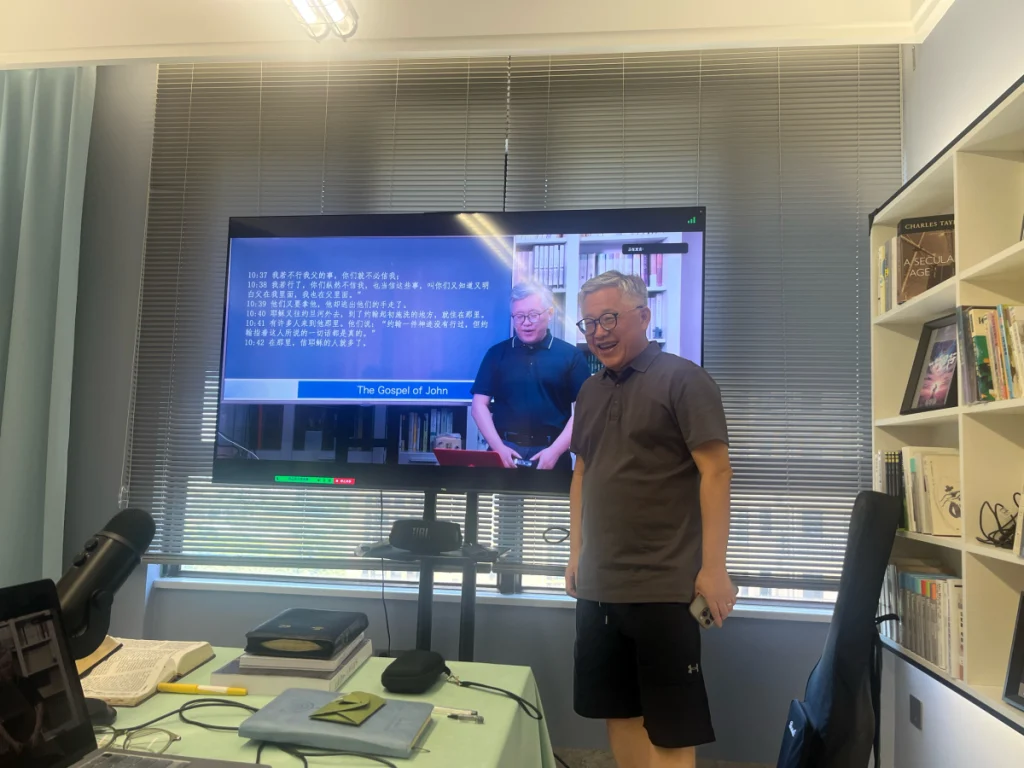U.S. Calls for Release of Pastor Jin Mingri as China Detains Church Leaders
The U.S. State Department has issued a demand for China to release Pastor “Ezra” Jin Mingri, the 56-year-old founder of Zion Church, one of China’s largest underground Protestant congregations. Jin was detained at his home in Beihai, Guangxi Province last Friday, according to a message posted by his wife on the church’s social media account. The arrest appears to be part of a broader crackdown, with approximately 20 other pastors reportedly taken into custody across the country at roughly the same time. Secretary of State Marco Rubio has called for the immediate release of these Christians, urging the Chinese Communist Party to “allow all people of faith, including members of house churches, to engage in religious activities without fear of retribution.”
This wave of detentions has significantly heightened diplomatic tensions between the United States and China, occurring just weeks before a scheduled summit between President Donald Trump and Chinese President Xi Jinping in South Korea. The timing is particularly sensitive as it comes amid ongoing friction over trade issues and broader human rights concerns. An official detention notice reviewed by Reuters indicates that Jin is being held on suspicion of “illegal use of information networks,” a charge that could result in up to seven years of imprisonment. This incident represents what some observers are calling China’s most significant crackdown on Christianity in seven years, raising alarms about religious freedom in the country and potentially complicating the already strained relationship between the two global powers.
The situation highlights the complex religious landscape in China, where the constitution technically guarantees “freedom of religious beliefs” and recognizes five official religions: Buddhism, Catholicism, Islam, Protestantism, and Daoism. Official figures indicate that approximately 44 million Christians belong to state-sanctioned churches in China, but estimates suggest tens of millions more worship in unauthorized “house churches” that operate outside government control. Jin’s Zion Church, founded in 2007, grew to become one of the country’s largest Protestant congregations before being officially banned by authorities in 2018. Despite the ban, several thousand followers reportedly continue to attend services both in Beijing and elsewhere in China, illustrating the resilience of underground faith communities despite governmental pressure.
Jin’s wife, Liu Chunli, expressed her distress in a social media post, writing: “My heart is heavy with shock, sorrow, anger, and fear. Yet I must reaffirm this truth: Pastor Jin has done nothing wrong. He has only done what a faithful shepherd should do—preaching the gospel in and out of season, whether through traditional means or through the internet, proclaiming Christ to those willing to follow Him. What he has done is what every true pastor in the universal Church is called to do. He is innocent!” This emotional appeal underscores the personal toll of China’s religious policies on families and communities of faith. Meanwhile, Chinese officials maintain that they simply enforce legal norms rather than targeting religious groups, with Foreign Ministry spokesperson Lin Jian stating that “the Chinese government governs religious affairs in accordance with the law, and protects the religious freedom of citizens and normal religious activities.”
The crackdown occurs against the backdrop of President Xi Jinping’s intensified “Sinicization” policy, which requires religious groups to align their doctrines with communist ideology and Chinese culture. Just last month, Xi pledged to “implement strict law enforcement” and advance this Sinicization agenda. According to the international Christian advocacy group Open Doors, which ranks China 15th on its World Watch List of countries where Christians face persecution, “Unregistered churches, even those once tolerated, are considered illegal and increasingly put under pressure, as authorities seek to enforce regulations and tighten policies. State-approved churches come under strong ideological pressure, and smaller congregations are often forced to merge to make a larger church that is easier for the state to control.” This systematic approach to religious management reflects China’s broader efforts to ensure that faith practices remain firmly under government oversight.
The detentions have triggered calls for further U.S. diplomatic action, with families, advocacy groups, and lawmakers urging the Trump administration to pressure Beijing for the immediate release of the detained Christians. Corey Jackson, founder of Luke Alliance, a U.S.-based group supporting Christians in China, expressed concern about potential escalation, telling The New York Times: “If this is the first move, then it could be far worse down the line.” While the State Department has not yet indicated what additional measures it might take, it has called for international scrutiny of China’s religious freedom record. As the situation unfolds, it will likely remain a significant point of contention in U.S.-China relations, highlighting fundamental differences in approaches to human rights, religious freedom, and the role of faith in society—differences that continue to challenge diplomatic engagement between these two global powers.


